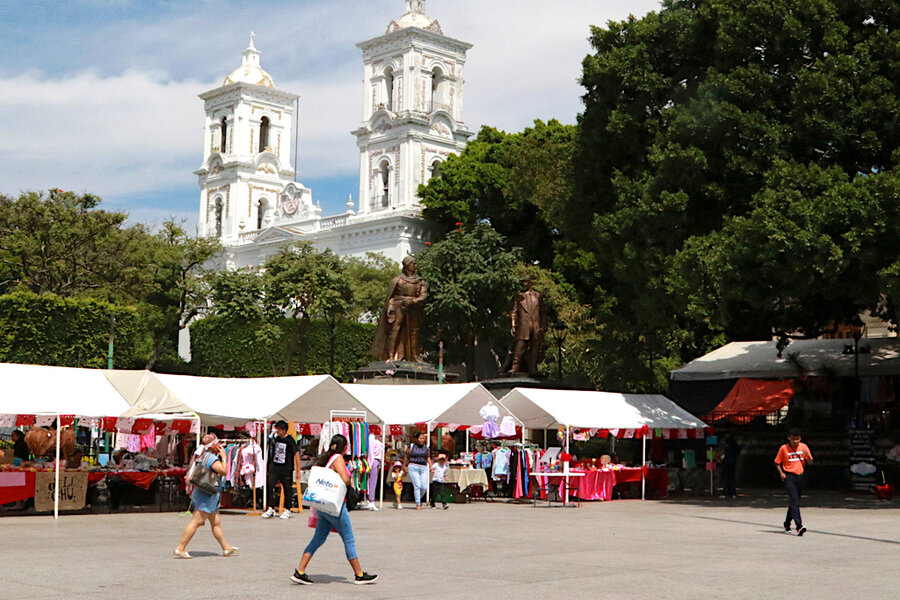In global trouble spots, the force of faith
Loading...
In early February, when the president of Senegal postponed a scheduled national election, street protests erupted over fears he might stay in power. Yet one of the most powerful voices for restoring the election – and calm – came from the League of Imams and Preachers of Senegal. The religious leaders asked President Macky Sall “to ensure an honorable exit and give our country every chance to remain a haven of peace and stability.” He relented.
Also in February, religious leaders in Mexico negotiated a truce between two drug cartels in the southern state of Guerrero. The rival gangs had escalated a turf war with a sharp rise in killings. The truce has since held, and the murder rate in the state has dropped by 23%. One Catholic bishop said the cease-fire has been maintained by constant prayer.
Meanwhile in gang-wracked Haiti, where one priest was able to arrange a temporary truce between gangs last year, many religious leaders have stayed put to meet the needs of the people. Last month, the country’s Catholic bishops invited “all Haitians, without distinction, to refrain from fuelling violence” and support an effort to form an inclusive transitional government.
Such peace endeavors by faith leaders are being taken more seriously by governments these days. Last year, Samantha Power, administrator of the U.S. Agency for International Development, called for officials to better engage religious workers in social and economic work.
“We must take religion into account,” she said. “In fact, when we fail to do so, we fail to tap into one of the world’s most powerful potential forces for change.”
“At their best, religious traditions around the world remind us of the dignity of all people – dignity, a force that has spurred people to action,” Ms. Power added.
Sometimes religious sentiment can be “a catalyst for violence,” as the United States Institute of Peace pointed out. Yet it can also be “an unparalleled inspiration for reconciliation and healing,” the institute noted.
“Even where religion is not an explicit presence, it is a cultural undercurrent that is immutably present – and one that is often vastly underestimated by policymakers.”
Faith leaders are hardly underestimated in places such as Senegal, Mexico, and Haiti. They are in the public eye and not only in the pulpit. The rest of the world has taken note.







